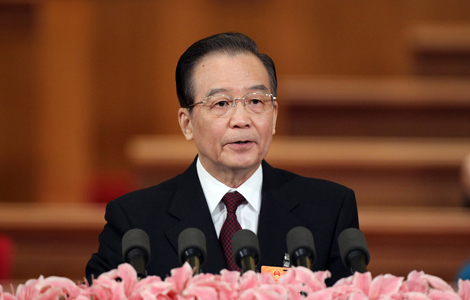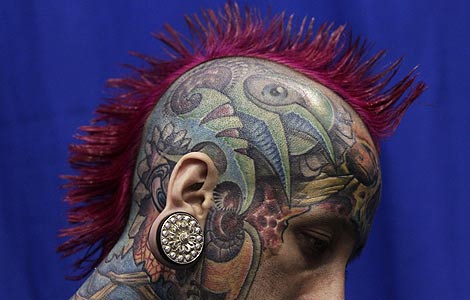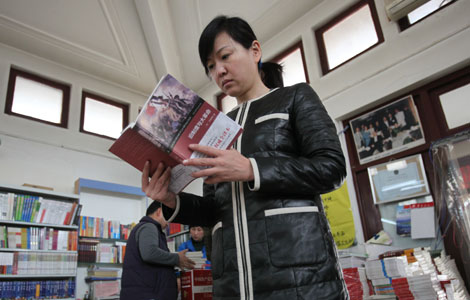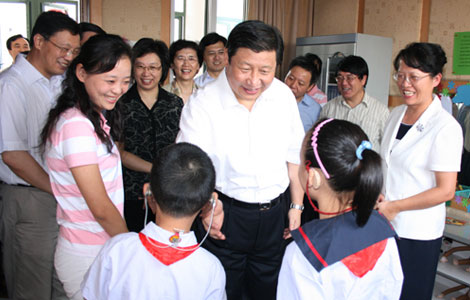Chavez's coffin moved to military academy for wake
Updated: 2013-03-07 13:45
(Xinhua)
|
||||||||
|
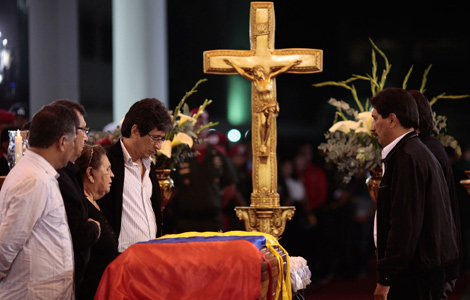 |
|
Elena Frias (3rd L), mother of late Venezuelan President Hugo Chavez, stands with her other sons next to his coffin during a wake at the military academy in Caracas March 6, 2013, in this picture provided by the Miraflores Palace. [Photo/Agencies]
|
A huge crowd of Chavez's supporters, dressed in red flags, accompanied the procession that started around 11 am from the Military Hospital where Chavez spent his last minutes fighting for life, to the academy where he received military training in the 1970s and 1980s.
Chavez died of cancer on Tuesday at the age of 58.
A wooden casket, with the body of the Venezuelan leader, was taken to the chapel, where presidents of Argentina, Bolivia and Uruguay made the first round of honor.
After them, Venezuelan Vice President Nicolas Maduro and President of the National Assembly Diosdado Cabello, along with other cabinet members, stood on each side of the coffin to pay their tribute.
Then, Chavez's children -- Rosa Virginia, Maria Gabriela, Hugo Rosines and one of his granddaughter, honored the president amid prolonged applause from the audience.
Later, a religious ceremony was held in the hall. Attendees included family members, priests, Protestant pastors, cabinet members and other executive officials.
Foreign Minister Elias Jaua said the Military Academy was chosen to keep Chavez's body because he used to call the place "the cradle of the Bolivarian revolution."
Chavez's coffin is to be open for visit and honor to the public till Friday, when an official funeral will be held.
It is still unknown where Chavez's grave would be, but his supporters have proposed the National Pantheon, where such national heroes as Simon Bolivar and Antonio Jose de Sucre were put to rest.


